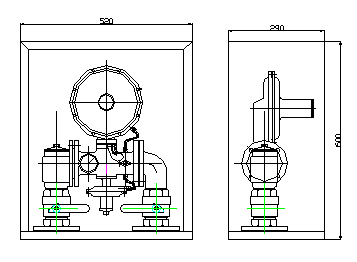
Nov . 08, 2024 06:44
Back to list
Optimizing Heat Exchanger Efficiency for Natural Gas Applications and Sustainability
Understanding Natural Gas Heat Exchangers An Essential Component for Efficient Energy Transfer
Natural gas is a primary source of energy for heating, cooking, and powering various industrial processes across the globe. As the demand for energy-efficient solutions grows, natural gas heat exchangers have emerged as critical components in maximizing the efficiency of energy transfer in various applications. This article delves into the workings, types, benefits, and applications of natural gas heat exchangers, highlighting their significance in modern energy systems.
What is a Heat Exchanger?
A heat exchanger is a device that facilitates the transfer of heat from one medium to another, effectively allowing for thermal energy exchange without mixing the two fluids. In the context of natural gas, heat exchangers play a vital role in numerous applications, from residential heating systems to large-scale industrial operations.
Heat exchangers typically rely on conduction and convection to transfer heat. They can operate between gases, liquids, or a combination of the two. The efficiency of a heat exchanger largely depends on its design, materials, and the flow configuration of the fluids involved.
Types of Natural Gas Heat Exchangers
There are several types of heat exchangers utilized in natural gas applications. Two of the most common types are
1. Shell and Tube Heat Exchangers This design consists of a series of tubes, one set carrying the natural gas and the other carrying a different fluid (such as water or oil) for heating or cooling purposes. Shell and tube heat exchangers are well-regarded for their ability to handle high pressures and temperatures, making them suitable for industrial applications.
2. Plate Heat Exchangers These consist of multiple thin plates stacked together, which create channels for the fluids to flow through. This design increases the surface area for heat transfer, resulting in high efficiency. Plate heat exchangers are commonly used in applications where space is limited, and they are easier to clean and maintain.
Benefits of Natural Gas Heat Exchangers
The advantages of deploying natural gas heat exchangers in energy systems are manifold
- Energy Efficiency By recovering waste heat and transferring it to other processes, heat exchangers improve overall energy efficiency, leading to reduced fuel consumption and lower emissions
.natural gas heat exchanger

- Cost Savings Increased efficiency translates to lower operating costs. In industrial settings, the ability to reuse energy can significantly reduce fuel bills and enhance the bottom line.
- Environmental Impact Utilizing natural gas heat exchangers supports cleaner energy initiatives. By optimizing energy use, facilities can lower their carbon footprint and contribute to sustainability goals.
- Versatility Heat exchangers can be designed to accommodate various fluids and temperature ranges, making them suitable for a wide range of applications, from residential to heavy industrial use.
Applications of Natural Gas Heat Exchangers
Natural gas heat exchangers are employed in numerous sectors, showcasing their versatility and essential role in energy systems. Some notable applications include
- Residential Heating Systems In homes, natural gas heat exchangers are often found in boilers and furnaces, where they facilitate the transfer of heat to water or air for heating purposes.
- Industrial Processes In industries such as petrochemicals, power generation, and manufacturing, heat exchangers are critical for cooling and heating processes, improving efficiency in operations.
- Natural Gas Processing Heat exchangers play a vital role in gas processing plants, where they manage the temperature of gases in various stages of processing, such as liquefaction and purification.
- Refrigeration Systems In refrigeration applications, these heat exchangers help regulate temperatures, ensuring efficiency and reliability in cooling cycles.
Conclusion
Natural gas heat exchangers are indispensable in modern energy systems, providing efficient thermal energy transfer across various applications. By enhancing energy efficiency, reducing costs, and minimizing environmental impact, these systems contribute to sustainable energy use. As industries continue to innovate and strive for greener solutions, the role of natural gas heat exchangers is sure to grow, reinforcing their importance in a sustainable energy future.
Latest news
-
Safety Valve Spring-Loaded Design Overpressure ProtectionNewsJul.25,2025
-
Precision Voltage Regulator AC5 Accuracy Grade PerformanceNewsJul.25,2025
-
Natural Gas Pressure Regulating Skid Industrial Pipeline ApplicationsNewsJul.25,2025
-
Natural Gas Filter Stainless Steel Mesh Element DesignNewsJul.25,2025
-
Gas Pressure Regulator Valve Direct-Acting Spring-Loaded DesignNewsJul.25,2025
-
Decompression Equipment Multi-Stage Heat Exchange System DesignNewsJul.25,2025

